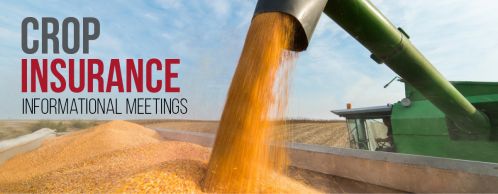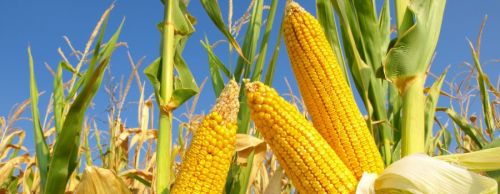
Managing Risk in Your Farm Operation
Article By: Cathy Asher, Relationship Manager for SFB
The last few years have left producers feeling as if there are variables within their farming operations that are out of their control. When we watch the markets fall almost as quickly as they rallied, it's easy to get pulled into a mindset of throwing our hands in the air. Some of us have been caught on the wrong end of a milk or grain contract, which may make us gun shy about taking a future risk.
There are multiple risks to consider mitigating in your operation. Most often, when we think about risk within a farming operation, we're focused on price risk. We're targeting our energy toward minimizing risk in what we will get paid when we market our milk, crops, or livestock. Beyond price risk, we also need to consider yield, institutional, personal and financial risks associated with being in business while also looking for opportunities to minimize their effects on the long-term success of the farm business.
YIELD RISK
Never has yield risk been at the forefront of farmer's mind than it was in 2019. There were a whole host of weather irregularities both locally and nationally that negatively impacted yield and thereby farm income. As we approach harvest, now is a great time to be gathering yield data and discussing both underperforming and top-performing hybrids with your agronomist. There is a wealth of science and data at their disposal to help select varieties better suited for your farm's soil to minimize the effects of less than ideal growing conditions. Beyond seed varieties, take some time to review your crop insurance coverage levels to assess for opportunities to further minimize risk. Multi-peril crop insurance offers both yield and revenue protection at varying levels. SFB's Mark Chilson would be happy to work with you to tailor a policy to meet the needs of your individual operation.
PRICE RISK
Price risk refers to not only the price we receive when our product leaves the farm gate but also the fluctuation of the cost of inputs used to produce that product. In most cases, there are months invested in getting your product to market. Contracting and prepaying inputs can reduce the risk for your operation and improve profit margin from an expense perspective during the production period. When deciding on what and when to contract in the way of inputs there are a few factors to consider:
- Are there potential supply concerns in the marketplace like we experienced in the Spring of 2019 with fertilizer?
- Will you be able to cover the up-front expense from cash flow or will you need to utilize financing?
- If you need to finance the inputs this could create additional interest expenses. Do the math and determine whether your discount on a product will really cost you in interest.
INSTITUTIONAL RISK
Institutional risk results from changes in policies and regulations that affect agriculture. A prime example of this is our current trade situation with China. We've observed prices on soybeans remain at fairly flat levels with the exception of the last week or so. Understanding your cost of production can help you decide when is the time to sell when we experience some upward movement in prices.
Another example of institutional risk is permitting livestock facilities and changes in policies affecting manure disposal. Are you addressing potential concerns with improper manure disposal and working to correct them? Is your livestock facility growing to the point of needing a CAFO permit? The cost of CAFO permitting or building/improving manure storage can seem daunting. However, the impact to income with ceasing operations due to lack of permitting or other environmental concerns could pose a much larger risk to your business.
PERSONAL RISK
Personal risk results from disruptions to the operation from the exit of a partner, death of a family member, divorce, injury, or ongoing health concern. Are you covered with a disability or life insurance in the event that one of these personal risks becomes a reality? In the event that one of the key people in your operation becomes unable to fulfill their role, do you have coverage in place to protect income or pay down debt?
There are disability insurance products that farmers are eligible for depending on Schedule F income levels. Chilson also is familiar with these products as well as life insurance options and could put together a quote for you.
As we approach winter, you may also want to take the time to review your insurance policy on your farm assets. Are you covered in the event of a catastrophic event such as a fire or building collapse? A rider for loss of use can help protect income during the rebuilding process. Asset coverage is never stagnant but rather to be reviewed annually with your agent to ensure adequate coverage at a reasonable cost.
FINANCIAL RISK
Financial risk refers to how a farm business obtains its capital to operate. If the capital is financed, there is a potential risk to the operation with rising interest rates. If the business requires borrowing more capital in any given year under variable rates that are on the rise that exposes the business to additional interest expense, which reduces profit margins. Even if the farm is self-financed there is a financial risk with the potential loss of equity in the event of negative profit margins. Mitigating the aforementioned risk categories can reduce the financial risk to your farm operation.
RISK MANAGEMENT PLAN
While this may seem like a lot to consider, it is important to remember that you do not need to have all the answers or solutions to the potential risk in your farm operation. Your insurance agents, marketing advisor, agronomist, lender, and government specialists are at your disposal to help you create a comprehensive risk management plan for your farm. At SFB, we are here to help you in this process and we wish you all the best as we enter the harvest season.
Cathy Asher is a relationship manager in SFB's Ag Banking Department. You can contact her at 715.672.2410 or at casher@sfbank.com.



